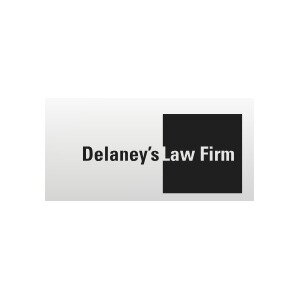Best Commercial Real Estate Lawyers in Ottawa
Share your needs with us, get contacted by law firms.
Free. Takes 2 min.
Free Guide to Hiring a Real Estate Lawyer
List of the best lawyers in Ottawa, Canada
About Commercial Real Estate Law in Ottawa, Canada
Commercial real estate law in Ottawa, Canada, is a key segment of the broader real estate legal framework that deals with legal issues related to commercial properties. This includes matters related to purchasing, selling, developing, leasing and financing of property such as office buildings, shopping centers, factories, and other commercial spaces. These laws help to regulate the complex transactions and disputes that can arise in the high-stakes world of commercial real estate.
Why You May Need a Lawyer
Whether you're a buyer, seller, tenant, landlord or a developer, there are plenty of scenarios where seeking legal advice could be beneficial in commercial real estate deals. Common situations include:
- Drafting or reviewing purchase and sale agreements
- Navigating zoning and land use challenges
- Resolving landlord-tenant disputes
- Conducting due diligence during property transactions
- Handling property financing and investment matters
Local Laws Overview
In Ottawa, commercial real estate law is governed by both provincial and federal laws. Key local legal aspects to keep in mind include:
- Land Transfer Tax: The Land Transfer Tax (LTT) is payable by the purchaser on the acquisition of any interest in land.
- Zoning By-laws: Different parts of the city have varying zoning laws impacting where commercial property can be built and how it can be used.
- Lease laws: Ontario commercial lease agreements are governed by the Commercial Tenancies Act.
Frequently Asked Questions
What is a Commercial Real Estate Lawyer’s role?
Commercial real estate lawyers advise on legal aspects related to property transactions, negotiate deals, conduct due diligence, draft and review contracts and leases, and represent clients in real estate disputes.
What's the difference between residential and commercial real estate law?
While both areas deal with properties, commercial and residential real estate law differ mainly in terms of complexity of transactions, regulations about usage of properties and lease structures, and the taxation policies.
Can I handle a commercial real estate transaction myself?
While it's possible to handle transactions personally, a commercial real estate lawyer's guidance can ensure compliance with all laws, minimize risks and protect your interests.
What are some common disputes in commercial real estate?
Common disputes often relate to lease terms, property damage, rent and service charge disputes, dilapidations claims, and breaches of covenants.
Are there any lease rent controls for commercial properties?
No, rent control measures typically apply to residential tenancies in Ontario, not commercial.
Additional Resources
You might find the following resources helpful:
- Federation of Ontario Law Associations - provides resources and educational material on legal matters
- Ontario Real Estate Association - offers information about Ontario’s real estate market
- City of Ottawa’s Planning, Infrastructure and Economic Development Department - handles zoning and land use matters
Next Steps
If you're in need of legal assistance, you should consider consulting with a legal professional specializing in commercial real estate in Ottawa. Gather any relevant documents, take note of any important dates, deadlines or events, and be ready to explain your situation in detail. This will facilitate a more meaningful and productive consultation session with your chosen legal advisor.
Lawzana helps you find the best lawyers and law firms in Ottawa through a curated and pre-screened list of qualified legal professionals. Our platform offers rankings and detailed profiles of attorneys and law firms, allowing you to compare based on practice areas, including Commercial Real Estate, experience, and client feedback.
Each profile includes a description of the firm's areas of practice, client reviews, team members and partners, year of establishment, spoken languages, office locations, contact information, social media presence, and any published articles or resources. Most firms on our platform speak English and are experienced in both local and international legal matters.
Get a quote from top-rated law firms in Ottawa, Canada — quickly, securely, and without unnecessary hassle.
Disclaimer:
The information provided on this page is for general informational purposes only and does not constitute legal advice. While we strive to ensure the accuracy and relevance of the content, legal information may change over time, and interpretations of the law can vary. You should always consult with a qualified legal professional for advice specific to your situation.
We disclaim all liability for actions taken or not taken based on the content of this page. If you believe any information is incorrect or outdated, please contact us, and we will review and update it where appropriate.









